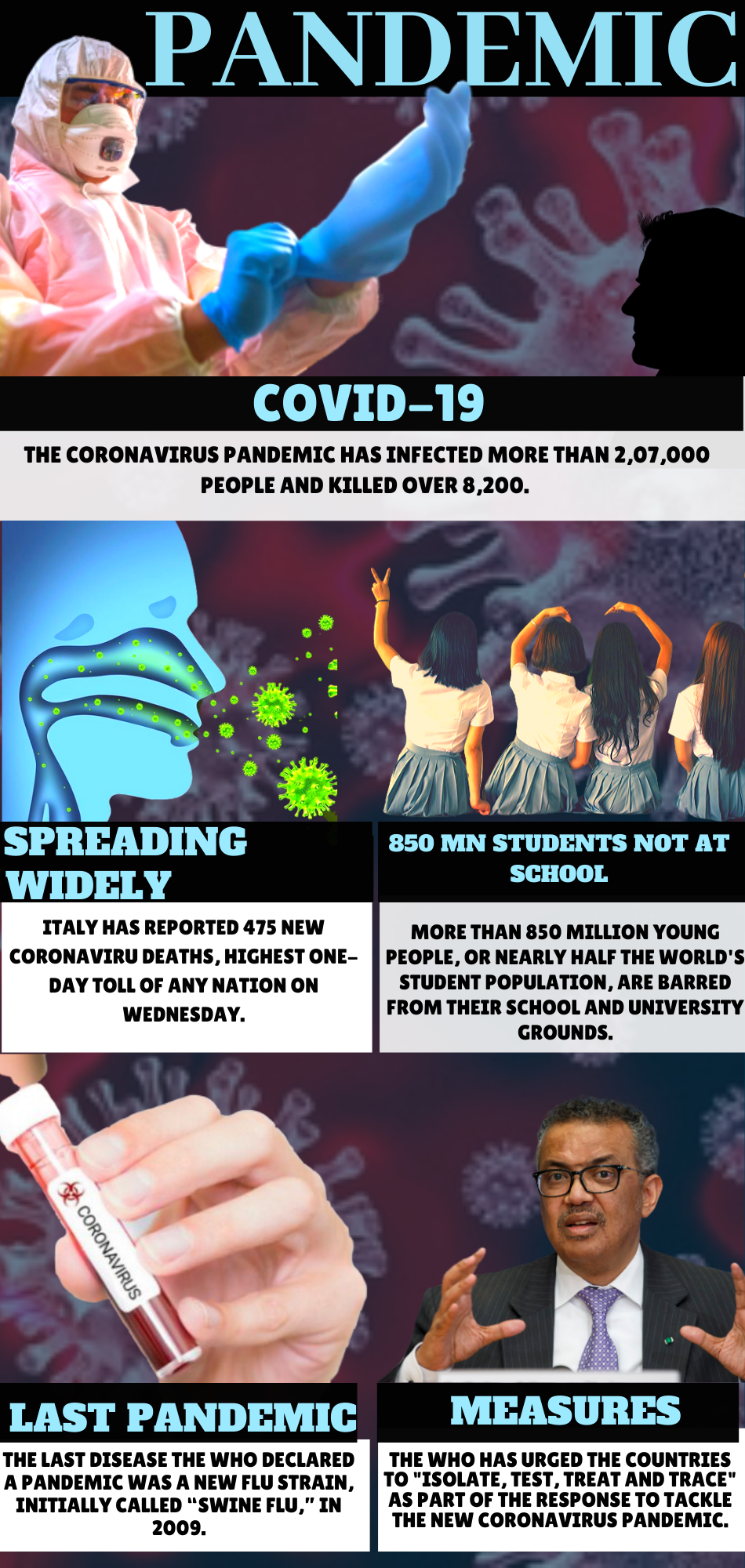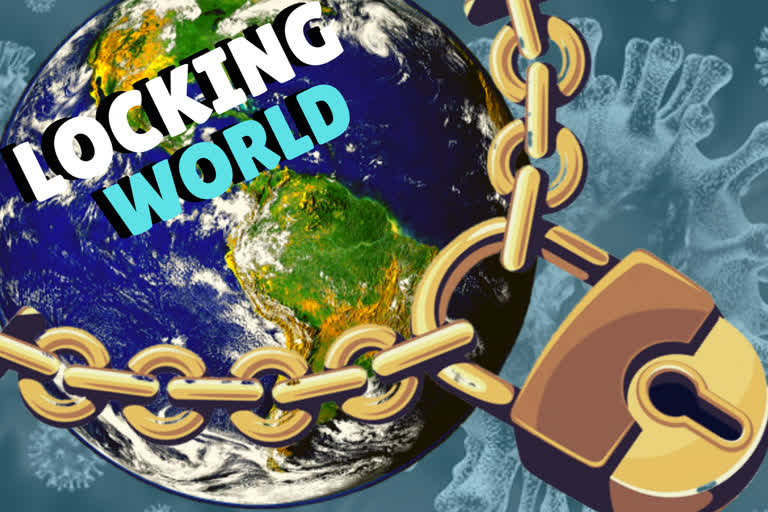Berlin: Desperate travellers choked European border crossings on Wednesday after nations implemented strict controls in an attempt to slow the spread of the COVID-19 virus, creating traffic jams miles long and slowing the passage of trucks carrying critical supplies.
The number of people infected worldwide crested the 2,00,000 mark and deaths topped 8,000, with the number of people now recovered at more than 82,000, according to a tally kept by Johns Hopkins University.

In the US, President Donald Trump pressed Congress to swiftly pass a potentially $1 trillion rescue package to prop up the economy and speed relief checks to Americans in a matter of weeks, as stocks tumbled again on Wall Street.
US-Canada border shut to non-essential traffic
US and Canada will be closing their borders temporarily because of the coronavirus pandemic, President Donald Trump tweeted on Wednesday.
However, he said that trade will not be affected.
"We will be, by mutual consent, temporarily closing our Northern Border with Canada to non-essential traffic," he said.
The 8,840-kilometre border is longest between two countries and not heavily protected or patrolled.
Earlier, public media outlet, Canada Broadcasting Corporation (CBC), reported that according to its sources, the border would be closed to shoppers and tourists but allow commercial traffic to keep the supply chains intact.
Many people living in either country work on the other side of the border and for many Canadians, it is cheaper to shop on the American side for some items.
Read also: Italy struggles to make room for onslaught of virus patients
In an attempt to alleviate some of the pressure from eastern Europeans stuck in Austria trying to return home, Hungary overnight opened its borders in phases. Bulgarian citizens were first allowed to cross in carefully controlled convoys, then Romanians had a turn.
But by early Wednesday on the Austrian side of the border, trucks were backed up for 28 kilometers (17 miles) and cars for 14 kilometers (nearly 9 miles) as rules allowing only Hungarians or transport trucks through the country's borders kicked back in.
Read also: COVID-19 not man made: Study
European Union leaders have been working on how to make sure that food, medical supplies and other essential goods keep flowing but so far borders have been clogged. Looking ahead, they're also trying to figure out ways to allow seasonal agricultural workers, needed to keep the production of food going, to travel back and forth across essentially closed borders.
Nations around the world were facing the same issues, with the US and Canada working on a mutual ban on nonessential travel between the two countries.
In Southeast Asia, the causeway between Malaysia and the financial hub of Singapore was eerily quiet after Malaysia shut its borders, while the Philippines backed down on an order giving foreigners 72 hours to leave from a large part of its main island.
President Donald Trump's administration was considering a plan to immediately return to Mexico all people who cross America's southern border illegally, according to two officials who spoke to The Associated Press on the condition of anonymity because the plan hasn’t been finalised.
The coronavirus is now present in every US state after West Virginia reported an infection. In far-flung Hawaii, the governor encouraged travellers to postpone their island vacations for at least the next 30 days, while the governor of Nevada — home to Las Vegas — ordered a monthlong closure of the state's casinos.
With inputs from AP



